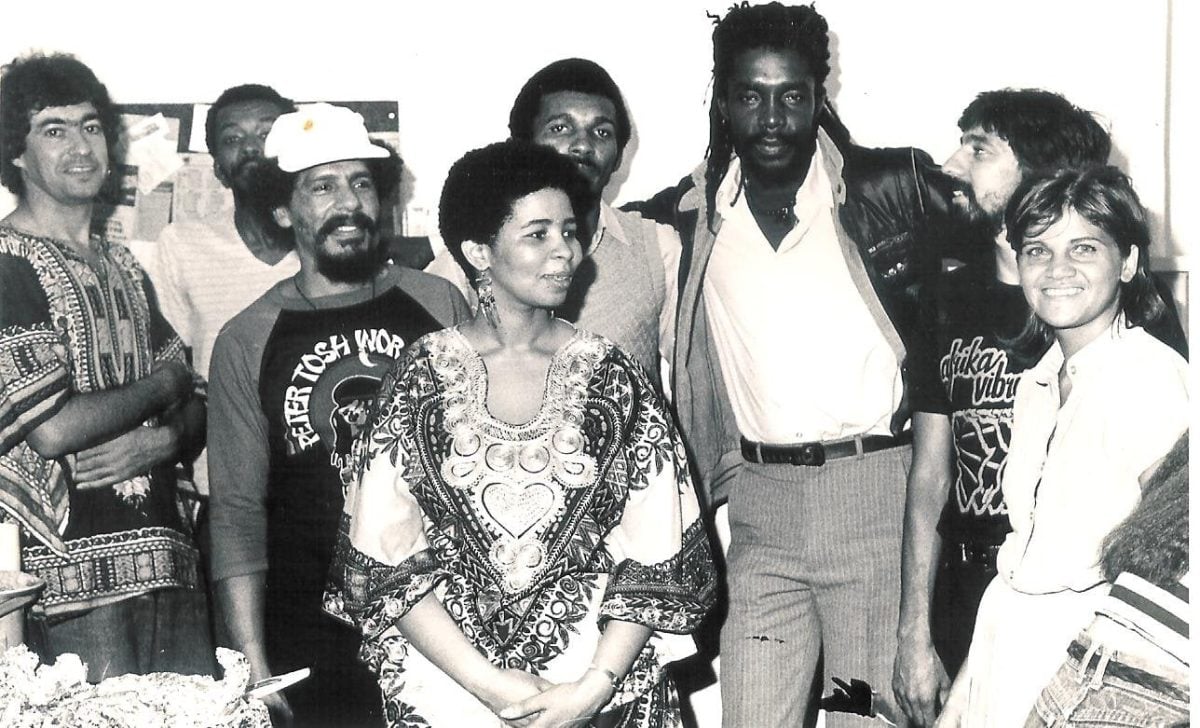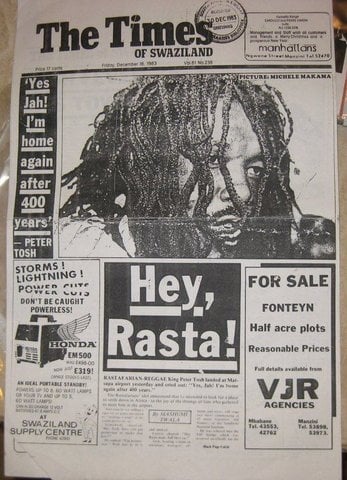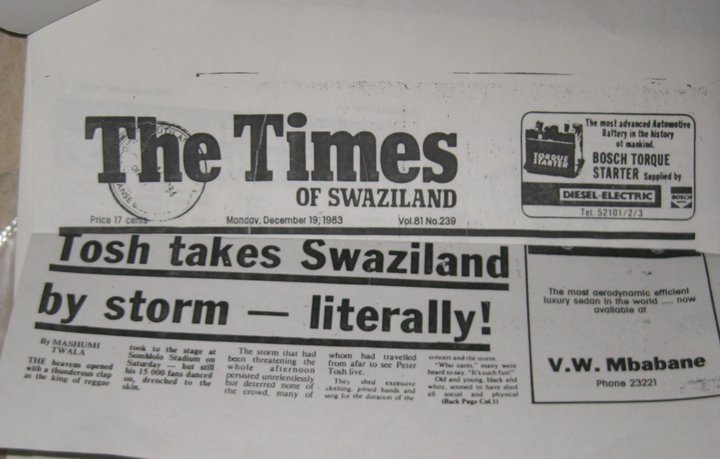Remembering Peter Tosh: The Night He Let 5,000 Fans Into A Swaziland Concert For Free

When Peter Tosh agreed to perform at two concerts in Swaziland in December 1983, little did his manager, Copeland Forbes, know that the Reggae icon would order the promoter to “buss the gate” and allow thousands of people waiting outside the venue to gallop in for free.
According to Forbes, after months of negotiations with himself and Tosh, the concerts, which were the Westmorelite’s first and last in Southern Africa, were scheduled for December 17 and 18, 1983, at the Somhlolo Stadium in Mbabane.
“1983 was one of, if not the biggest year in the musical journey of Peter Tosh. The album “Mama Africa” was released and the lead-off single, Johnny B Goode was on the top of most radio station’s playlist across the world,” Forbes explained.
The concerts had been staged by promoters from South Africa, who lived in Australia but were the principals of Africa Vibrations, an entertainment company. It came on the heels of Tosh’s stint in Australia, where he spent close to a month touring, playing at live concerts, and even shot the video for Johnny B Goode.
In outlining the events that led to Peter’s dramatic request, Forbes said that on December 14, 1983, Peter Tosh’s entourage of 16 had flown from Kingston to London and then on to Germany and then Zimbabwe, where four chartered planes took them to Swaziland, as “Peter had made it very clear that he did not want to go through South Africa” which would have been the case had they taken a commercial flight.
“It was not, at that time, deemed appropriate for recording artists to be seen in South Africa as this was still the period of Apartheid. Nelson Mandela was still in prison,” Forbes noted.
“Peter had refused many offers (paying huge sums) to perform in South Africa. He was afraid to even have a connecting flight through the racist nation as he knew that someone could take his picture at the airport and use it for propaganda purposes,” he added.
In further outlining Peter’s reticence about South Africa, Forbes said that the Mama Africa singer had participated in an interview earlier that year with a journalist in New York, who had asked him if he would perform in South Africa on which Apartheid had a stranglehold.
While Peter had answered saying “Yes, but the only way I would play is if I am performing for my people. Why should I keep my music away from my people?” the journalist had “distorted Peter’s answer and published an article bearing the headline “Peter Tosh Said He Would Play in South Africa” which “caused quite a bit of controversy and left Peter furious, Forbes recounted.
Concert Day
According to the Reggae My Life Is author, people from neighboring South Africa were walking through borders and adjoining territories to attend Peter’s Swaziland shows, and as such, some patrons who had tickets for the Saturday show did not arrive on time due to delays in getting processed at the border.
“The security in Swaziland closed the borders due to the flood of people who were coming into the country from neighboring territories. The promoters allowed those who had tickets for the show on Saturday (but were late) to use them on Sunday. The first night went very well,” he said.
“The Africans were thoroughly enjoying the opportunity of seeing one of their favorite acts perform on their own soil. Suddenly the music stopped. Marlene (Peter’s common-law wife) was onstage talking to Peter. Tosh walked up to the microphone and told the audience that he would not be continuing the show unless the promoters opened the gates and allowed everyone on the outside to enter without charge,” he stated.
The mortified Forbes said that Peter was concerned that people had traveled many miles to see him, and ought not to be turned away because of the cost, but had given no indication he would be willing to waive his fees and clearly “wanted to engage in an act of charity but not at his own expense”.
“There were about 5,000 people outside wanting to see the show but could not afford the entrance fee. I was stunned. How could Peter have made such a declaration? He had been contracted to perform at a paid event. His fees had already been sent to an escrow account. He had no right to determine what the promoters should charge,” Forbes said.
“When the fans outside the stadium heard Peter’s pronouncement, they broke down the walls and gates to gain entry. Thousands poured into the stadium without paying. Many ran with their fists raised straight towards the VIP area in front of the stage. The security could not restrain them. Peter was pumped when saw the crowd flooding into the stadium. He took up his M16 guitar and put the strap around his shoulder. The crowd went wild,” Forbes said.
Continued Forbes: “He began performing the song “Apartheid”. The stadium erupted. Everyone was in a frenzy as Peter sang, ‘We gonna fight, fight, fight, fight against Apartheid’. The entire stadium was singing and dancing. The promoter came to me and said that he was going to sue for breach of contract. He was on solid legal grounds. ‘How could Peter have done such a thing?’ he asked.
The promoter, after threatening to freeze Peter’s fees in the escrow account, returned and told Forbes that he was not at fault but that he ought to tell the artist “that he cannot do these things”.
“The next day the musicians were very reserved…. The show went well. Peter had given another superb performance. The audience and the promoter were pleased,” Forbes said.


